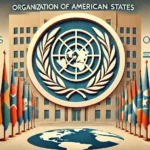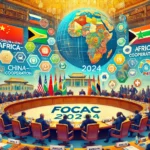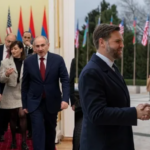Summary by Geopolist | Istanbul Center for Geopolitics
Peter Rough testifies extensively before the House Committee on Foreign Affairs on how China undermines U.S. influence in Europe, through both its alliance with Russia and strategic economic undertakings. This effort to the power balance shift includes supporting Russia’s war in Ukraine, state subsidies to dominate key manufacturing sectors, and using the Belt and Road Initiative to extend influence into regions such as the Balkans and Central Europe.
The Chinese economic methodology, defined as “Leninist mercantilism,” focuses on market manipulation and supply chain dominance. This has led to huge, commanding positions in industries such as the production of solar panels and electric cars, weakening European industries and creating dependencies in their wake. For instance, it is mentioned that Germany is among those countries most at risk because of its high dependence on the Chinese market, especially concerning the fabrication of cars. This is further extended to include efforts to penetrate the defense industries of Europe, including its strategic infrastructures such as its ports and telecommunication networks.
The document also outlines the way China carries out espionage, cyberwarfare, and influence operations to further its interests in Europe. These include widespread espionage through Huawei and ZTE telecom giants, the usage of software developed in China in European ports, and hacking operations against European politicians and institutions. Meanwhile, China has developed intelligence networks and has recently been accused of creating secret police stations all across Europe in a bid to monitor its diaspora and influence European elites via every channel available, including Confucius Institutes and media influence.
Rough insists that the recognition of the multi-faceted threat is an urgent business between Europe and the United States. He called for decisive Europe-wide measures to reduce economic dependence on China, to impose strict measures concerning China’s dumping practices, and to drastically limit its acquisition of strategic assets. The declaration concludes that unless this Beijing influence is duly countered, the global balance of power will be adjusted with China at the pinnacle, dangerous for the Western way of living.
In that sense, the testimony represents something like a holistic analysis of China’s strategic intentions and an implication of those for Europe’s geopolitical and economic landscapes. It urges Western policymakers to adopt a more resolute approach towards pushing back against Chinese influence, at the risk that delay in action further will only raise the risks to the transatlantic alliance and to global stability.







